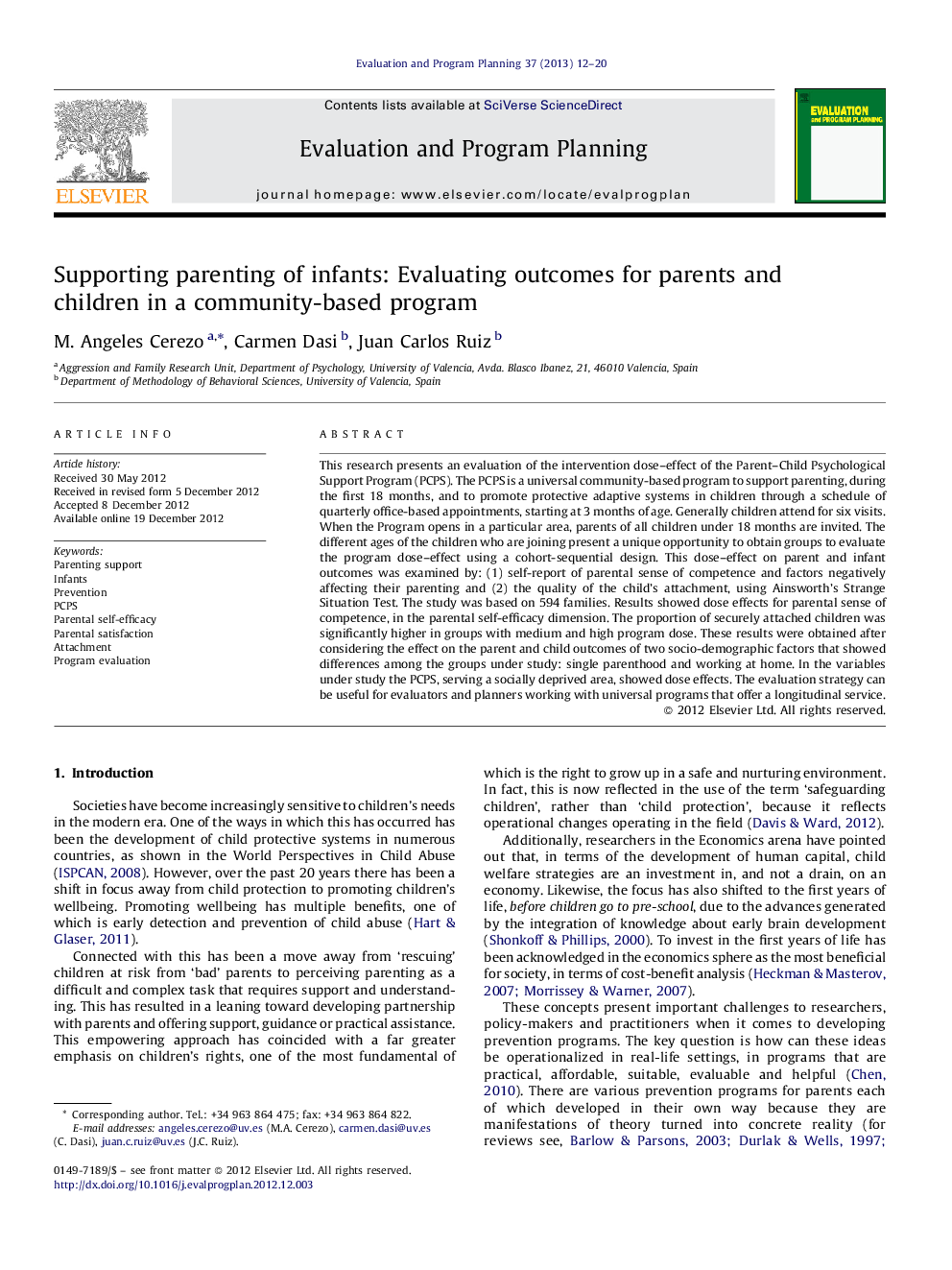| کد مقاله | کد نشریه | سال انتشار | مقاله انگلیسی | نسخه تمام متن |
|---|---|---|---|---|
| 322500 | 540073 | 2013 | 9 صفحه PDF | دانلود رایگان |

This research presents an evaluation of the intervention dose–effect of the Parent–Child Psychological Support Program (PCPS). The PCPS is a universal community-based program to support parenting, during the first 18 months, and to promote protective adaptive systems in children through a schedule of quarterly office-based appointments, starting at 3 months of age. Generally children attend for six visits. When the Program opens in a particular area, parents of all children under 18 months are invited. The different ages of the children who are joining present a unique opportunity to obtain groups to evaluate the program dose–effect using a cohort-sequential design. This dose–effect on parent and infant outcomes was examined by: (1) self-report of parental sense of competence and factors negatively affecting their parenting and (2) the quality of the child's attachment, using Ainsworth's Strange Situation Test. The study was based on 594 families. Results showed dose effects for parental sense of competence, in the parental self-efficacy dimension. The proportion of securely attached children was significantly higher in groups with medium and high program dose. These results were obtained after considering the effect on the parent and child outcomes of two socio-demographic factors that showed differences among the groups under study: single parenthood and working at home. In the variables under study the PCPS, serving a socially deprived area, showed dose effects. The evaluation strategy can be useful for evaluators and planners working with universal programs that offer a longitudinal service.
► Child welfare strategies are an investment in, and not a drain on, an economy.
► The advances generated by the integration of knowledge about early brain development has shifted the focus for prevention programs to the first years of life.
► Prevention strategies require the “tailoring” of research designs to address the core question: to minimize specific threats to validity.
► The Parent–Child Psychological Support Program (PCPS) support parenting and promotes adaptive protective systems in under-two infants.
► Dose effect is reported for sense of parental competence in parental self-efficacy dimension, and proportion of securely attached children.
Journal: Evaluation and Program Planning - Volume 37, April 2013, Pages 12–20